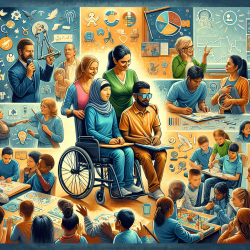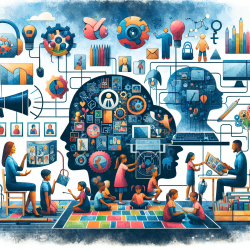Students who are deafblind face unique challenges in accessing the information and communication that form the foundation of learning and social interaction. The absence, partial presence, or distortion of vision and hearing can severely limit their ability to engage with the world around them. This not only affects their educational journey but also their social relationships and overall well-being. It's within this context that Intervener Services emerge as a critical component of the educational support system for students who are deafblind.
Understanding Intervener Services
Interveners are professionals who provide one-on-one support to students who are deafblind, facilitating access to information, communication, and promoting social and emotional well-being. Working under the direction of the classroom teacher and the Individualized Education Program (IEP) team, interveners are specially trained to address the unique needs of students who are deafblind. Their role is multifaceted, encompassing the provision of access to instruction, facilitation of concept development, and support for the development of trusting relationships.
Why Intervener Services May Be Needed
The need for Intervener Services is determined by the IEP team and is highly individualized. The key considerations include how deafblindness affects the student's access to information and communication, their social interactions, and their conceptual learning. Before deciding on the provision of Intervener Services, it's essential for the IEP team to have a comprehensive understanding of what these services entail and to ensure that the necessary expertise in deafblindness is available within the team.
IEP Team Discussion Guide
The IEP Team Discussion Guide is a valuable resource designed to assist teams in making informed decisions about the appropriateness of Intervener Services for a student. This guide outlines a structured approach to evaluating the student's needs, starting with a review of their use of residual vision and hearing, and extending to their access to information, communication, trusting relationships, and conceptual learning. The guide emphasizes the importance of considering the student's current supports and accommodations and whether these are sufficient to meet their needs.
Final Steps in Determining the Need for Intervener Services
- Review the student's ability to access information and communication.
- Assess the adequacy of current supports and accommodations.
- Consider the student's social interactions and conceptual learning needs.
- Make a decision based on a comprehensive understanding of the student's needs and the potential benefits of Intervener Services.
The ultimate goal of Intervener Services is to ensure that students who are deafblind have access to a free and appropriate education in the least restrictive environment possible. By addressing the specific challenges faced by these students, Intervener Services can significantly enhance their educational experience, enabling them to achieve their full potential.
For more information, please follow this link.










